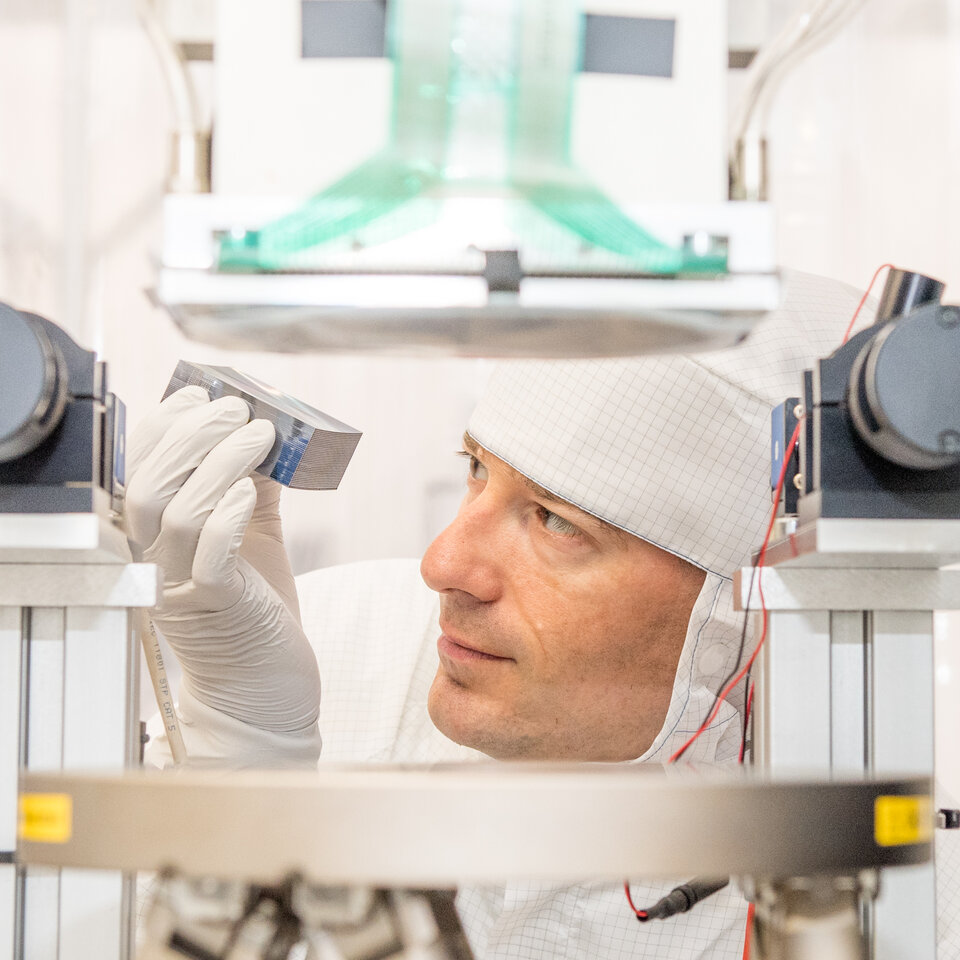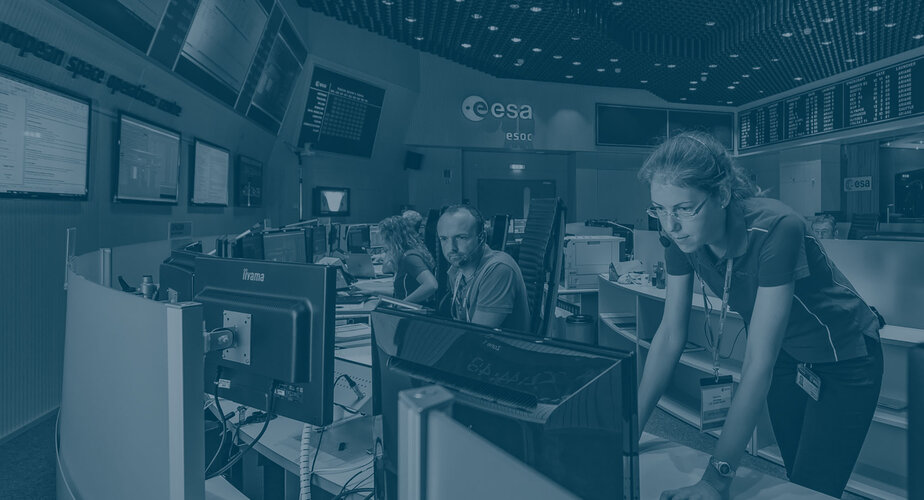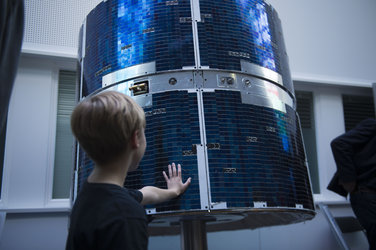What we offer
ESA offers attractive employment conditions, including a range of benefits, programmes and allowances to promote a multi-cultural, supportive, inclusive and family-friendly working environment.
The people who work at ESA are key to our success and are our most valuable asset. As an employer, we are committed to developing our staff throughout their career at ESA. We have put in place an attractive employment package to take care of our people in both their professional and personal lives and to offer a truly inclusive and supportive working environment.

ESA Salaries
ESA offers competitive salaries as an intergovernmental organisation and, together with other organisations such as the Council of Europe and the Organisation for Economic Cooperation and Development (OECD), it is part of the Co-ordinated Organisation system.
ESA salaries are exempt from national income tax in ESA Member States, in line with Annex I of the ESA Convention.
The majority of ESA positions fall into two grade categories (A or B) which are assigned according to the duties and responsibilities and the level of qualifications required. Most positions are A grade (usually A2-A4) and involve either scientific or engineering activities or business support services such as finance, controlling, IT, procurement, legal, etc.. B grade positions are mainly for secretarial, administrative or technical support activities.
Depending on personal circumstances, ESA staff may also be eligible for a number of additional allowances, such as family allowances, expatriation allowance and education allowance (i.e. reimbursement of part of the education costs of the children of expatriated staff members).

World-wide private insurance cover
ESA has a comprehensive social security scheme that provides cover for sickness, maternity, accident and disability. Staff members are covered for medical care worldwide on a primary basis from the date they start working at ESA. The coverage offered by ESA includes a full medical check each year and access to psychological support.
Under certain conditions, coverage can be extended to dependent spouses/registered partners and children. ESA pensioners can under certain conditions remain affiliated to the scheme.
The ESA retirement age is 63. Permanent contracts may be extended beyond this age for a limited duration under certain specific circumstances.
ESA offers a defined benefits pension scheme. Staff members accrue pension rights yearly and are eligible for a retirement pension from the age of 63 after completing 10 years of service. The maximum pension entitlement is 70% of the last earned salary, which is accrued after 35 years of service.
Staff members who leave the Agency before the completion of 10 years of service receive a leaving allowance (a one-time payment based on pension contributions made during the period of their service).
Relocation support
When you start working at ESA as a staff member, your principal residence will need to be within 100km of your workplace. If, as a result, you need to move to a new location, you will be entitled to receive a relocation support package. This includes support to help you find accommodation as well as the reimbursement of your removal expenses, plus an installation allowance to assist with the costs associated with settling into your new home.
ESA staff members have access to language classes, which are particularly helpful for those who relocate to a new country to work for the agency. We also offer access to support networks to you and your partner/spouse to help you adjust to the change and your new environment.
Flexible/hybrid working arrangements
ESA’s standard working pattern is an eight-hour working day and 40-hour week. To help you balance your professional and personal life, we offer a flexible working scheme, together with the option to telework. At ESA, you can telework 40% on a monthly basis and even more with management agreement. Telework is in principle foreseen from your home (i.e. your principal residence) and, with some limitations, you can also telework from another country. A part-time scheme (50, 60 or 80%) completes the set of options to allow you flexibility to achieve your professional goals. Some of these benefits, such as part-time working, can be requested once you have been working at ESA for a certain period of time.
Learn more about work-life balance at ESA

Working hours and leave
ESA staff are entitled to 12 public holidays and 32.5 days of annual leave each year (30 days for Young Graduate Trainees and Internal Research Fellows). Expatriate staff can benefit from an additional 8 days’ home leave every two years, under certain conditions. Home leave also entails payment of a return trip to your home country for you and your family. And, of course, ESA also makes provision for parenthood (pregnancy and bonding leave), parental/family care and sick leave and can grant special leave for personal and family-related reasons.
More information on the terms and conditions for Young Graduate Trainees and Internal Research Fellows can be found here (YGT) and here (RF).
A unique and inspiring place to work
Our mission is the peaceful exploration and use of space for the benefit of everyone. We watch over Earth, develop and launch inspiring and unique space projects, train astronauts and push the boundaries of science and technology, seeking answers to the big questions about the Universe. We are a family of scientists, engineers and business professionals from all over Europe working together in a diverse and multinational environment. We are dedicated to united space in Europe and united Europe in space.
While there is great diversity in the background, nationality and expertise of the people of ESA, they are united in their dedication to our mission. The activities of the Agency inspire and motivate them to perform at their very best. If this sounds like the type of environment that you, too, would thrive in, we invite you to consider a career at ESA.
Social engagement: the ESA Humanitarian Relief Fund
Run by ESA employees on a voluntary basis, the ESA HRF works to support small communities around the world by encouraging self-sufficiency, long-term sustainability, educational programmes, clean water and sanitation, in line with the United Nations Sustainable Development Goals. With the help of all volunteers across the different ESA sites, the HRF committee reviews support requests and grants donations. The projects it supports are smaller-scale, with local management and with minimum overheads. The HRF is accountable to its members and donors and liaises directly with the funded organisations, which report back to the committee on a regular basis and explain how the money was used.
More information
Interested in applying to ESA? Learn more about ways to join us and our recruitment process. You can also browse our current vacancies here.
Meet your future colleagues and find out more about ESA from the people who make it the great place that it is.
More questions? Check out our Frequently asked questions page.






